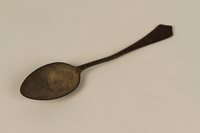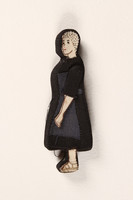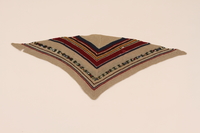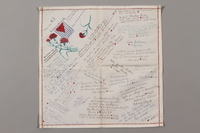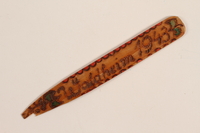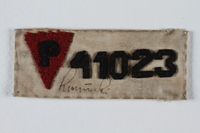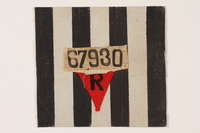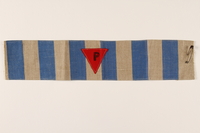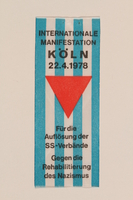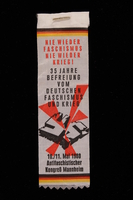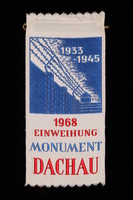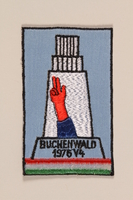Overview
- Credit Line
- United States Holocaust Memorial Museum Collection, Gift of Ilya Kamenkovitch
Physical Details
- Classification
-
Decorative Arts
- Category
-
Decorations
- Object Type
-
Ribbons (lcsh)
- Physical Description
- red triangle, blue and whtie stripes
- Dimensions
- overall: Height: 11.610 inches (29.489 cm) | Width: 8.190 inches (20.803 cm) | Depth: 20.790 inches (52.807 cm)
- Materials
- overall : cloth
Rights & Restrictions
- Conditions on Access
- No restrictions on access
- Conditions on Use
- No restrictions on use
Administrative Notes
- Legal Status
- Permanent Collection
- Provenance
- The ribbon was donated to the United States Holocaust Memorial Museum in 1995 by Irina Kamenkovich, Tamara Kamenkovich, and Natella Voiskinskaya, the family of Ilya Kamenkovitch.
- Record last modified:
- 2022-07-28 18:22:35
- This page:
- https://collections.ushmm.org/search/catalog/irn9276
Download & Licensing
In-Person Research
- By Appointment
- Request 21 Days in Advance of Visit
- Plan a Research Visit
- Request to See This Object
Contact Us
Also in Ilya Kamenkovich collection
Some of these materials may be combined into a single collection in the future.

Medal
Object
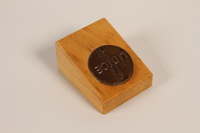
Medal
Object
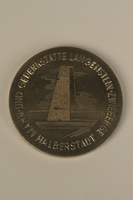
Medal
Object

Medal
Object
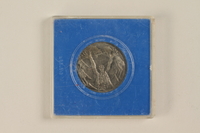
Medal
Object
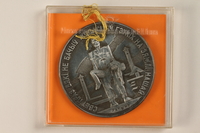
Medal
Object
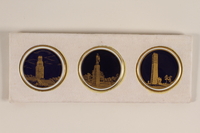
Plaque
Object
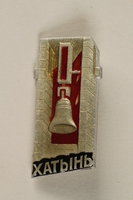
Pin
Object
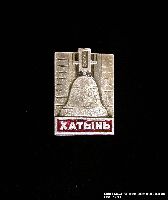
Pin
Object
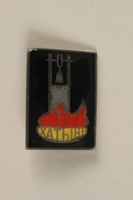
Pin
Object
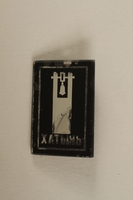
Pin
Object
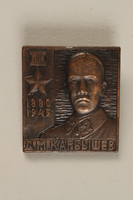
Pins
Object
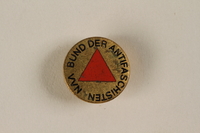
Pin
Object
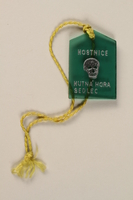
Identification tag
Object
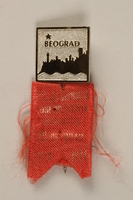
Stickpin
Object
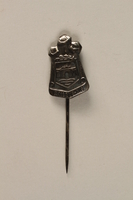
Stickpin
Object
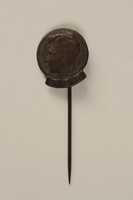
Stickpin
Object
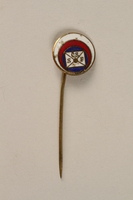
Stickpin
Object
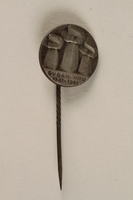
Stickpin
Object
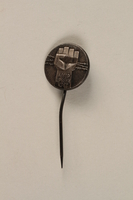
Stickpin
Object
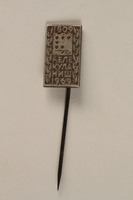
Stickpin
Object
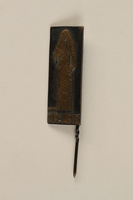
Stickpin
Object
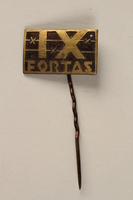
Stickpin
Object
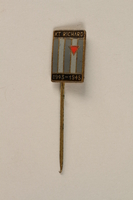
Stickpin
Object
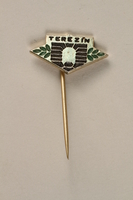
Stickpin
Object
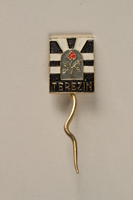
Stickpin
Object
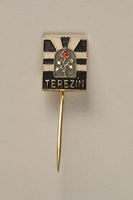
Stickpin
Object
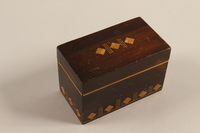
Box
Object
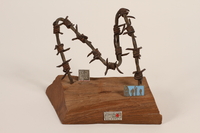
Barbed wire from the Salaspils Concentration Camp
Object
Barbed wire from the Salaspils Concentration Camp.

Postage stamp
Object
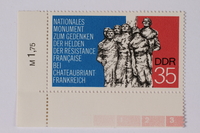
Postage stamp
Object
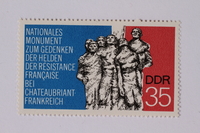
Postage stamp
Object
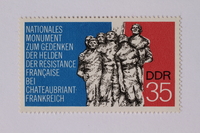
Postage stamp
Object
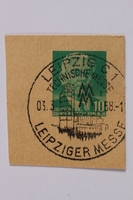
Postage stamp
Object

Postage stamp
Object

Postage stamp
Object

Postage stamp
Object

Postage stamp
Object

Postage stamp
Object
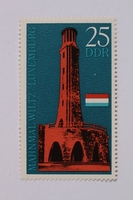
Postage stamp
Object

Postage stamp
Object
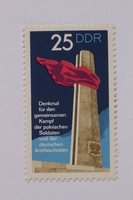
Postage stamp
Object

Postage stamp
Object

Postage stamp
Object

Postage stamp
Object
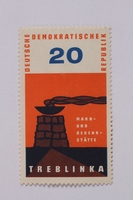
Postage stamp issued to commemorate Treblinka
Object
Postage stamp issued to commemorate Treblinka killing center by the German Democratic Republic in 1963. This was the first stamp of a series issued annually by the DDR under the name Mahn- und Gedensksatte [Remembrance and Memorial Center] in honor of World War II (1939-1945). In July 1942, the Germans built Treblinka II, a killing center, near the village of Wolka Okraglik, Poland, about 50 miles north of Warsaw. Nearly 1 million Jews were killed at Treblinka II before it was closed in the fall of 1943. As Soviet troops moved into the area in late July 1944, camp authorities shot the remaining prisoners and evacuated the camp.
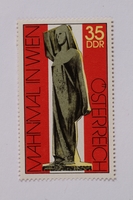
Postage stamp
Object
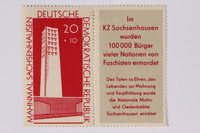
Postage stamp
Object
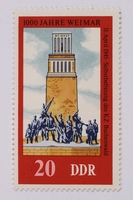
Postage stamp
Object

Postage stamp
Object
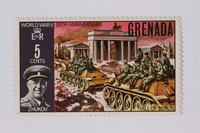
Postage stamp
Object
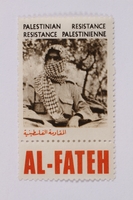
Postage stamp
Object
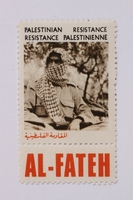
Postage stamp
Object
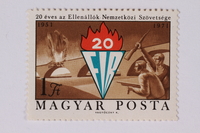
Postage stamp, Hungary
Object
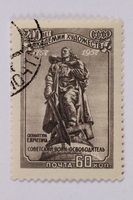
Postage stamp
Object
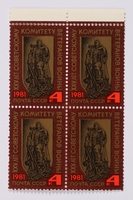
Postage stamp
Object

Postage stamp
Object

Postage stamp
Object
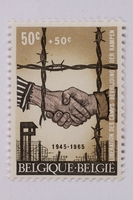
Postage stamp
Object
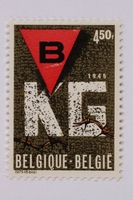
Postage stamp
Object

Postage stamp
Object
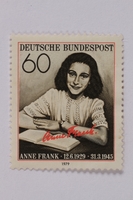
Postage stamp
Object
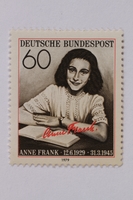
Postage stamp
Object

Postage stamp
Object

Postage stamp
Object
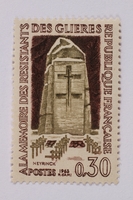
Postage stamp
Object
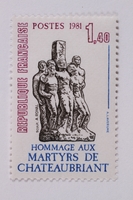
Postage stamp
Object
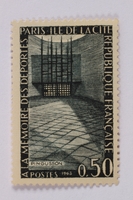
Postage stamp
Object

Postage stamp
Object
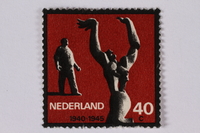
Postage stamp
Object
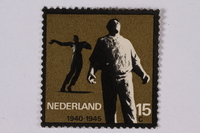
Postage stamp
Object
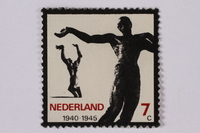
Postage stamp
Object
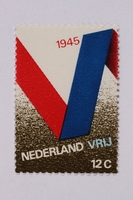
Postage stamp
Object
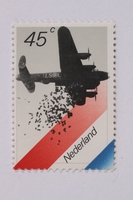
Postage stamp
Object
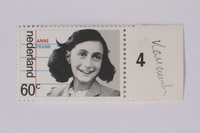
Postage stamp
Object

Postage stamp
Object
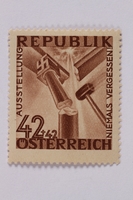
Postage stamp
Object

Postage stamp
Object
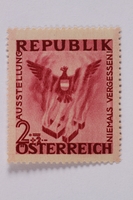
Postage stamp
Object
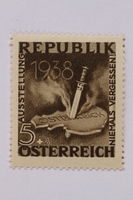
Postage stamp
Object
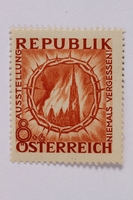
Postage stamp
Object
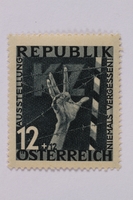
Postage stamp
Object
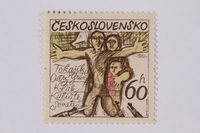
Postage stamp
Object

Postage stamp
Object
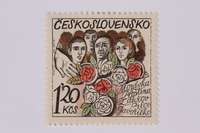
Postage stamp
Object
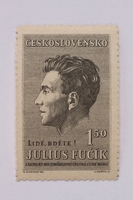
Postage stamp
Object
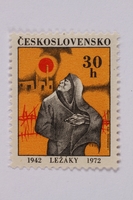
Postage stamp
Object
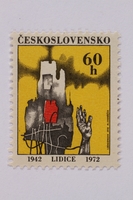
Postage stamp
Object

Postage stamp
Object
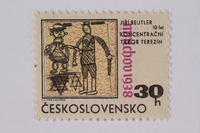
Postage stamp
Object
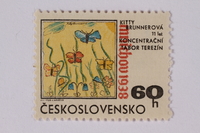
Postage stamp
Object
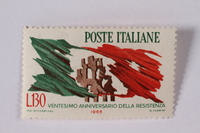
Postage stamp
Object
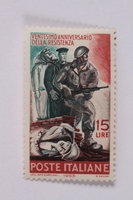
Postage stamp
Object
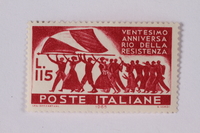
Postage stamp
Object
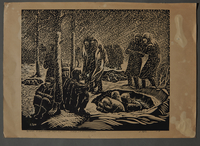
Object

Poster
Object

Object
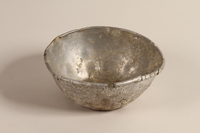
Bowl
Object
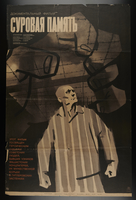
Poster
Object
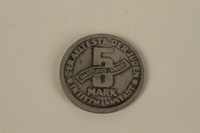
Łódź (Litzmannstadt) ghetto scrip, 5 mark coin
Object
5 mark coin issued in the Łódź ghetto in Poland in 1943. Nazi Germany occupied Poland on September 1, 1940; Łódź was renamed Litzmannstadt and annexed to the German Reich. In February, the Germans forcibly relocated the large Jewish population into a sealed ghetto. All currency was confiscated in exchange for Quittungen [receipts] that could be exchanged only in the ghetto. The scrip and tokens were designed by the Judenrat [Jewish Council] and includes traditional Jewish symbols. The Germans closed the ghetto in the summer of 1944 by deporting the residents to concentration camps or killing centers.
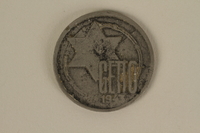
Łódź (Litzmannstadt) ghetto scrip, 10 mark coin
Object
10 mark coin issued in the Łódź ghetto in Poland in 1943. Nazi Germany occupied Poland on September 1, 1940; Łódź was renamed Litzmannstadt and annexed to the German Reich. In February, the Germans forcibly relocated the large Jewish population into a sealed ghetto. All currency was confiscated in exchange for Quittungen [receipts] that could be exchanged only in the ghetto. The scrip and tokens were designed by the Judenrat [Jewish Council] and includes traditional Jewish symbols. The Germans closed the ghetto in the summer of 1944 by deporting the residents to concentration camps or killing centers.
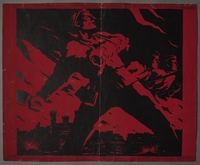
Drawing
Object
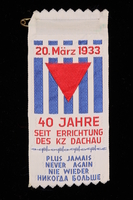
Commemorative ribbon for Dachau
Object
Commemorative ribbon for the 40th anniversary of the establishment of KZ Dachau
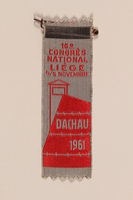
Commemorative ribbon for Dachau concentration camp from the 16th National Congress in Liege
Object
Commemorative ribbon from Dachau issued in 1961 for the 16th National Congress in Liege, France. Dachau was the first concentration camp established by the Nazi government in 1933, originally for political prisoners. Over time, other groups were interned at Dachau, such as Jehovah's Witnesses, Roma, homosexuals, repeat criminal offenders, and Jews. The SS used it as the training center for SS concentration camp guards and it had an active medical experiment program. Most of the prisoners were used a forced labor. Nearly 200,000 people were incarcerated at Dachau and nearly 20,000 inmates died there, although the exact number is not known. The camp was liberated by Amercain troops on April 29, 1945.

Handkerchief
Object
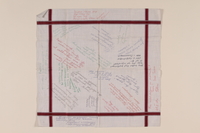
Handkerchief
Object
Ilya Kamenkovich Collection
Document
Consists of various materials concerning the experiences of Ilya Kamenkovich, including first-hand typescript testimonies, 1980s era clippings from Soviet newspapers, photographs, maps, and and East German postage stamps.
Book
Object
Book
Object
Sticker
Object
Postage stamp
Object
Drawing
Object
Lithograph
Object
Lithograph
Object
Lithograph
Object
Object
Object
Object
Object
Object
Object
Object
Object
Object
Object
Object
Object
Object
Object
Object
Object
Object
Object
Object
Object
Poster
Object
Poster
Object
Poster
Object
Drawing
Object
Drawing
Object
Object
Object
Object
Object
Object
Object
Object
Object
Object
Object
Object
Object
Object
Object
Object
Object
Drawing
Object
Book
Object

